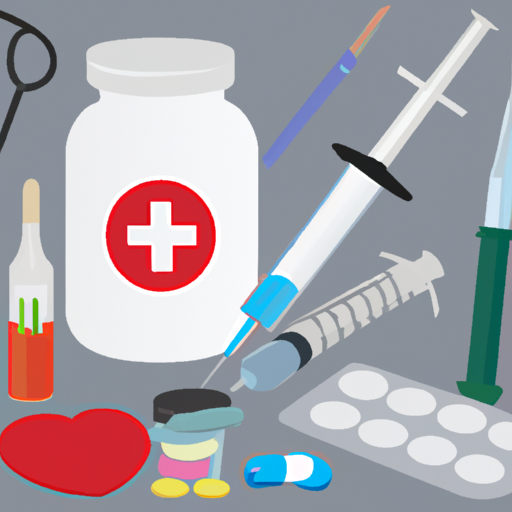Definition of Niacin
Niacin, also known as B3 or nicotinic acid, is an essential vitamin that our bodies require in order to stay healthy. It is important for the health of our skin, nerves, digestive system, and metabolism, and plays a key role in the development of energy from the foods we eat. Niacin can be found naturally in animal and plant sources, such as beef liver, tuna, sunflower seeds, and peanuts, and can also be taken as a supplement. Eating an adequate amount of foods high in niacin can help to prevent deficiencies, but taking too much can have harmful side effects, such as flushing, stomach problems, and high blood sugar. As with any vitamins or supplements, it’s important to speak with your doctor before taking niacin.
Sources of Niacin
Niacin, also known as vitamin B3, is an essential nutrient that has many important health benefits. While too much niacin can be harmful, there are several sources that can help you meet your daily needs.
- Dietary sources of niacin include beef, poultry, fish, nuts, eggs, fortified cereals and grains, and more.
- Over-the-counter supplements are available in the form of either nicotinic acid or niacinamide.
- Prescription medications may also contain niacin, such as those used to treat high cholesterol.
- Prescription medications may also contain niacin, such as those used to treat high cholesterol.
It is important to talk to your doctor or pharmacist to determine the right dosage for you, as too much niacin can lead to adverse effects.
Recommended Niacin Intake
Niacin, also known as Vitamin B3, is an essential nutrient that helps the body to produce energy and maintain healthy skin, nerves and digestive system. However, taking too much niacin can be harmful and can lead to a variety of health issues. Therefore, it’s important to understand what the recommended intake of niacin is.
- Adults aged 19 to 50 should consume 14 to 16 mg of niacin per day.
- Adults aged 51 and up should consume 16 mg of niacin per day.
- Pregnant women should consume 18 mg of niacin per day.
- Breastfeeding women should consume 17 mg of niacin per day.
It’s important to note that if your diet is lacking in niacin, your doctor may recommend taking a niacin supplement. It’s also important to keep in mind that taking more than the recommended daily amount of niacin can lead to serious health risks. If you’re concerned about your niacin intake, it’s best to consult with a healthcare professional.
Benefits of Niacin
Niacin, also known as vitamin B3, is essential for the proper functioning of the body. It helps the body convert food into energy, supports healthy skin and nerves, and may help reduce inflammation. Niacin is found in a variety of foods, such as eggs, meat, fish, and some fortified cereals. Additionally, niacin can be taken as a supplement. While getting an adequate amount of niacin is important, taking too much can be harmful. Consuming more than 500 milligrams of niacin in supplement form can cause severe side effects, such as skin flushing, nausea, dizziness, and liver damage. To reduce the risk of these side effects, individuals should only take the recommended daily amount of niacin and not exceed it. Talk to a doctor about the right amount of niacin for your individual needs.
Potential Dangers of Too Much Niacin
The potential risks of taking too much niacin as a medical supplement are largely undetermined due to a lack of clinical studies. However, too much niacin can cause uncomfortable side effects such as flushed skin, tingling, rashes, and headaches. Higher doses may cause serious adverse reactions such as liver damage, raised blood sugar and cholesterol, and an increased risk of peptic ulcers or gastrointestinal bleeding. People taking high doses of niacin should seek the advice of their doctor and be sure to monitor any side effects. Niacin should only be used for medical purposes and never for any type of recreational use.
Conclusion
In conclusion, it is important to note that too much niacin can be harmful to your health. Taking more niacin than recommended can have serious side effects, so it is best to consult a medical professional before supplementing niacin. The risks associated with niacin over-supplementation include:
- Skin flushing, especially of the face, neck, and chest
- Nausea
- Stomach ulcers
- Liver toxicity
- Diarrhea
- Headaches
- Low blood pressure
- Gout
It is also important to remember that the body needs some niacin in order to function properly. While too much niacin can be harmful, getting enough of this essential vitamin is still necessary to maintain good health. Ultimately, it is advised to check with your doctor before taking niacin supplements to ensure that they are safe and appropriate for your individual needs.





No Comments